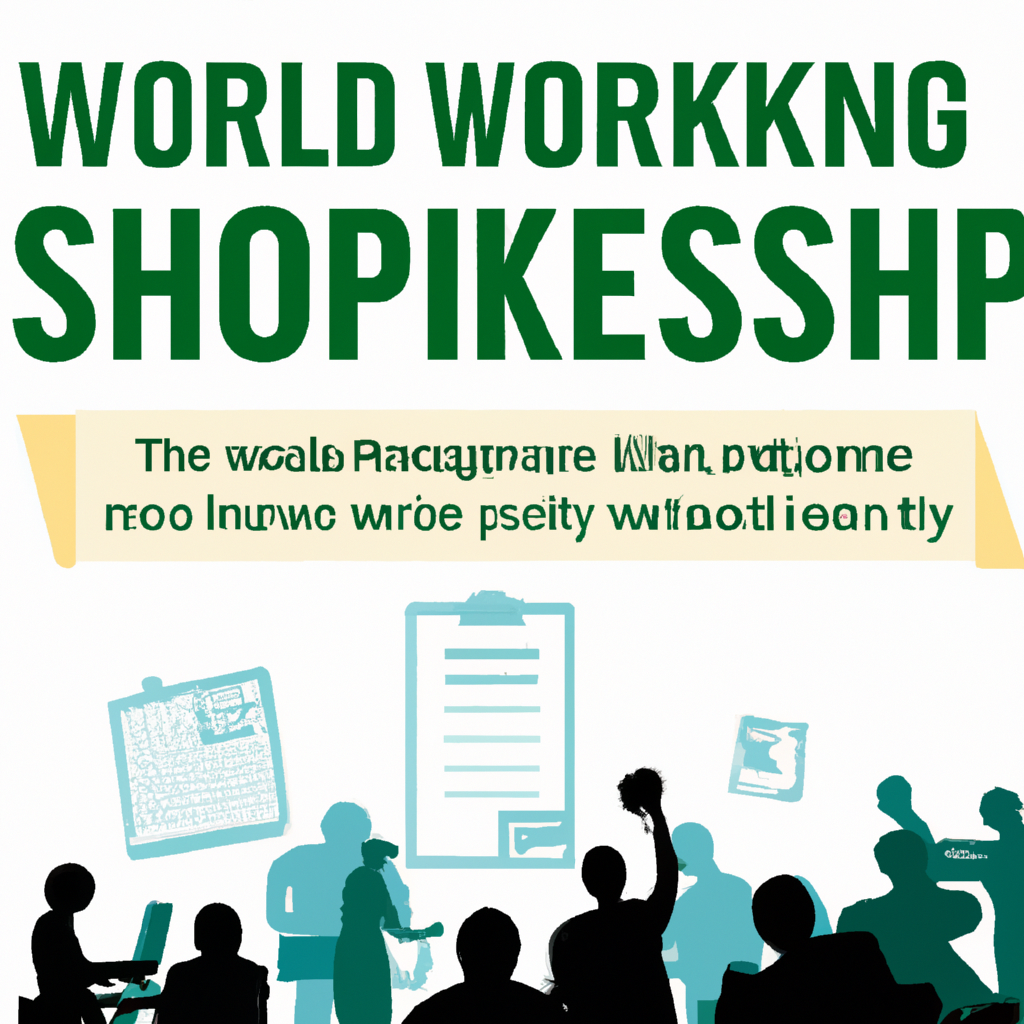Looking to boost your financial knowledge? Look no further than attending financial workshops or seminars! These events provide a great opportunity to enhance your understanding of various financial topics, from investing and budgeting to retirement planning and tax strategies. By participating in these workshops, you’ll have the chance to learn from industry experts, engage in discussions with fellow attendees, and gain valuable insights that can help you make more informed financial decisions. Don’t miss out on the chance to expand your financial knowledge – sign up for a workshop or seminar today! Financial workshops or seminars offer a wide range of benefits that can greatly enhance your knowledge and understanding of various financial topics. Whether you are a beginner looking to build a strong foundation or a seasoned professional seeking to stay up-to-date with the latest industry trends, attending these events can be highly beneficial. In this article, we will explore the advantages of attending financial workshops or seminars, provide tips on selecting the right ones, offer advice on how to prepare for such events, and discuss how to get the most out of your experience. We will also delve into how these workshops and seminars compare to other learning methods, discuss the cost and investment involved, highlight some popular topics, share testimonials and success stories, and address common challenges you may face when attending such events.

Benefits of attending financial workshops or seminars
Networking opportunities
One of the key advantages of attending financial workshops or seminars is the opportunity to network with like-minded individuals. These events attract professionals from various sectors of the financial industry, providing you with a valuable platform to connect with experts, peers, and potential mentors. Networking can lead to valuable collaborations, career opportunities, and the exchange of ideas and knowledge.
Access to experts and industry leaders
Financial workshops and seminars often feature renowned experts and industry leaders as speakers or panelists. These experts have deep knowledge and experience in their respective fields, and attending their sessions provides you with a unique chance to learn from the best. You can gain insights, ask questions, and receive valuable advice, all directly from those at the forefront of the industry.
Current and relevant information
The financial industry is constantly evolving, with new trends, technologies, and regulations emerging regularly. Attending workshops or seminars enables you to stay updated on the latest developments and trends in the field. The information you receive is current, cutting-edge, and tailored specifically to the financial industry, ensuring that you are equipped with the most relevant and accurate knowledge.
Practical knowledge and skills
Financial workshops or seminars focus on providing participants with practical knowledge and skills that can be immediately applied in real-life situations. These events often include interactive sessions, case studies, and hands-on exercises to ensure that attendees can actively engage with the content and gain practical experience. This practical approach enhances your understanding and ability to implement what you have learned.
Interactive learning experience
Unlike traditional educational settings, financial workshops or seminars offer a more interactive learning experience. The sessions are designed to encourage participation, discussion, and active engagement. This interactive format promotes a deeper level of understanding and allows you to learn from the diverse perspectives and experiences of both the instructors and other attendees.
Choosing the right financial workshops or seminars
Identify your specific needs and goals
Before selecting a financial workshop or seminar to attend, it is important to identify your specific needs and goals. Consider what areas of financial knowledge you wish to enhance or what specific skills you want to develop. Understanding your objectives will help you narrow down your options and choose the workshops or seminars that align with your needs.
Research and review available options
Once you have identified your needs and goals, conduct thorough research to identify the available options. Look for reputable organizations and institutions that offer workshops or seminars in your area of interest. Take the time to review their websites, read about their instructors, and explore the topics covered. This research will help you gather information to make an informed decision.
Consider the reputation and credibility of the organizers
When selecting a financial workshop or seminar, it is essential to consider the reputation and credibility of the organizers. Look for organizers with a strong track record in delivering high-quality events and positive reviews from past attendees. Trusted and reputable organizers are more likely to provide a valuable learning experience.
Evaluate the content and agenda
Take the time to evaluate the content and agenda of each workshop or seminar you are considering. Look for sessions that cover the specific topics you are interested in and ones that provide a comprehensive and well-structured curriculum. Consider the balance between theoretical knowledge and practical application in the agenda to ensure that you will gain both knowledge and skills.
Check participant feedback and testimonials
To gain a better understanding of the quality and impact of a financial workshop or seminar, it can be helpful to check participant feedback and testimonials. Look for reviews or testimonials from past attendees on the organizer’s website or other reliable sources. Hearing from those who have previously attended can provide insight into the overall experience and what you can expect.
Preparing for a financial workshop or seminar
Set clear objectives and expectations
Before attending a financial workshop or seminar, set clear objectives and expectations for what you hope to achieve. Establish specific learning outcomes you want to accomplish and outline what you expect to gain from the experience. These objectives will help guide your focus and ensure that you make the most of your time at the event.
Review pre-session materials
In many cases, organizers provide pre-session materials, such as reading materials or pre-workshop assignments, to participants. Take the time to review these materials thoroughly to familiarize yourself with the content and concepts that will be covered. This preparation will enable you to actively engage with the material during the workshop or seminar and deepen your understanding.
Bring necessary tools and materials
To fully participate in a financial workshop or seminar, it is important to bring any necessary tools and materials. This may include a notebook or laptop for taking notes, pens or pencils, calculators, and any other materials or resources specified by the organizer. Being well-prepared with the necessary tools will allow you to actively engage with the content and maximize your learning experience.
Prepare questions and discussion topics
To make the most of your time at the workshop or seminar, come prepared with questions and discussion topics related to the content. Think about areas where you may need clarification or additional information and jot down any questions you have. This preparation will ensure that you actively participate during discussions and have the opportunity to get your queries addressed.
Dress appropriately and arrive on time
When attending a financial workshop or seminar, it is important to dress appropriately and arrive on time. Dressing professionally shows respect for the event and demonstrates your commitment to learning. Arriving on time allows you to settle in, network with fellow attendees, and ensure that you don’t miss any important information or introductions.
Getting the most out of financial workshops or seminars
Actively participate and engage
To get the most out of a financial workshop or seminar, it is crucial to actively participate and engage with the content and activities. Be attentive, ask questions, and share your thoughts and experiences. Take advantage of any interactive elements, such as group discussions or case studies, to actively contribute and learn from others.
Take thorough notes and organize information
During the workshop or seminar, take thorough notes to capture key points, insights, and any action steps or strategies discussed. These notes will serve as a valuable reference when reviewing the material later on. After the event, take the time to organize your notes and consolidate the information in a way that makes it easily accessible and understandable.
Network with fellow attendees
Make an effort to network with fellow attendees during breaks, meals, or networking sessions. Engage in conversations, exchange contact information, and follow up with those you connect with. Building relationships with other professionals in the industry can lead to valuable connections, collaborations, and ongoing learning opportunities beyond the workshop or seminar.
Ask for clarification or elaboration
If there is something you don’t understand or need further clarification on, don’t hesitate to ask. Asking for clarification or elaboration during the workshop or seminar ensures that you fully grasp the concepts being presented. The instructors and other participants are valuable resources, and they will appreciate your willingness to seek additional understanding.
Utilize post-session resources and follow-up
After the workshop or seminar, take advantage of any post-session resources or materials provided by the organizers. These resources may include presentation slides, handouts, or additional readings to further deepen your knowledge. Additionally, consider following up with the instructors or other attendees to continue the discussions or seek further guidance.

Building your financial knowledge and skills
Continue self-education and research
Attending financial workshops or seminars should be viewed as part of an ongoing process of self-education and research. To build your financial knowledge and skills, make a commitment to continue learning even after the event. Stay updated on industry news, read relevant books or articles, and seek out additional resources or online courses to further expand your understanding.
Apply learned concepts and strategies
The true value of attending financial workshops or seminars lies in your ability to apply what you have learned in real-life situations. Take the time to reflect on the concepts and strategies presented and consider how they can be applied to your personal or professional circumstances. Actively implementing what you have learned will reinforce your understanding and help you develop practical skills.
Seek additional professional development opportunities
Attending financial workshops or seminars is just one aspect of professional development. To continue growing and advancing in your financial career, seek out additional opportunities such as webinars, conferences, or specialized training programs. These activities will enhance your knowledge, expand your network, and demonstrate your dedication to ongoing professional development.
Stay updated on industry trends and changes
The financial industry is constantly evolving, with new trends, technologies, and regulations emerging. To stay ahead of the curve, make it a habit to stay updated on industry trends and changes. Follow reputable financial news sources, subscribe to industry newsletters, and engage with professional organizations to stay informed about the latest developments in the field.
Consider pursuing relevant certifications or degrees
If you are looking to further solidify your financial knowledge and skills, consider pursuing relevant certifications or advanced degrees. Professional certifications, such as Certified Financial Planner (CFP) or Chartered Financial Analyst (CFA), can provide additional credibility and open doors to new career opportunities. Advanced degrees, such as a Master’s in Finance or an MBA, can deepen your expertise and enable you to take on more advanced roles.
Financial workshops or seminars vs. other learning methods
Advantages of workshops or seminars
Financial workshops or seminars offer several advantages over other learning methods. The interactive nature of these events allows for immediate application of concepts and active engagement with the material. The opportunity to network with industry experts and peers also provides a unique learning experience, fostering the exchange of ideas and perspectives.
Disadvantages of workshops or seminars
While financial workshops or seminars have many benefits, there are also some potential disadvantages to consider. These events can be costly, both in terms of registration fees and associated travel expenses. Additionally, workshops or seminars may have limited availability, requiring you to align your schedule with the event dates and locations.
Comparison with online courses
Online courses provide the flexibility to learn at your own pace, from anywhere with an internet connection. They often offer a wide range of topics and are generally more affordable than in-person events. However, online courses can lack the personal interaction and networking opportunities that workshops or seminars provide.
Comparison with traditional education
Traditional education, such as pursuing a degree in finance, offers a comprehensive and structured learning experience. However, it can be time-consuming and expensive. Financial workshops or seminars provide a more focused and practical approach, allowing you to acquire specific knowledge or skills without the long-term commitment of a degree program.
Finding a balance between different learning methods
To truly enhance your financial knowledge and skills, finding a balance between different learning methods is crucial. Combining workshops or seminars with online courses, books, webinars, or mentorship opportunities can provide a well-rounded and holistic learning experience. Explore different options and determine what combination works best for your specific goals and circumstances.

Understanding the cost and investment of attending
Financial considerations
Attending financial workshops or seminars comes with certain financial considerations. Registration fees, travel expenses, accommodation, and meals are some of the costs to account for when budgeting for such events. It is important to assess the overall cost in relation to your budget and weigh it against the potential benefits and value you expect to gain.
Value for money
When evaluating the cost of attending a financial workshop or seminar, it is crucial to consider the value for money. Assess the reputation of the event, the expertise of the speakers or instructors, and the quality of the content and agenda. A higher cost may be justified if the event offers high-quality resources, networking opportunities, and practical knowledge that aligns with your goals.
Potential return on investment
Investing in your financial education through workshops or seminars can yield a positive return on investment. The knowledge and skills you gain may enhance your career prospects, contribute to your professional growth, and potentially lead to increased earning potential. Consider the potential return on investment in terms of future career opportunities, promotions, or the ability to make well-informed financial decisions.
Consideration of long-term benefits
While the immediate cost may seem significant, it is important to consider the long-term benefits of attending financial workshops or seminars. The knowledge, skills, and connections gained from such events can have a lasting impact on your personal and professional development. Evaluate the potential long-term benefits when assessing the value and investment of attending.
Exploring alternative funding or sponsorship
If the cost of attending a financial workshop or seminar appears prohibitive, consider exploring alternative funding or sponsorship options. Some employers may provide financial support for employee development or have specific budgets for professional education. Additionally, professional organizations or industry associations may offer scholarships or sponsorships for individuals seeking to enhance their financial knowledge.
Popular financial workshop or seminar topics
Personal finance management
Personal finance management workshops or seminars provide individuals with the knowledge and strategies needed to effectively manage their personal finances. Topics covered may include budgeting, debt management, investing, retirement planning, and tax optimization. These events equip attendees with the skills to make informed financial decisions and achieve their personal financial goals.
Investment strategies and techniques
Investment workshops or seminars focus on providing individuals with insights into different investment strategies and techniques. These events explore topics such as asset allocation, risk management, portfolio diversification, and evaluating investment opportunities. Attendees learn how to make sound investment decisions and maximize returns while managing risk.
Risk management and insurance
Workshops or seminars on risk management and insurance delve into topics such as identifying and assessing risks, determining insurance needs, and understanding insurance policies. These events equip attendees with the knowledge to effectively mitigate risks and protect their personal or business assets. They also provide insights into the various types of insurance available and how to make informed insurance choices.
Retirement planning
Retirement planning workshops or seminars help individuals develop a comprehensive retirement plan, taking into account factors such as savings, investments, healthcare costs, and social security benefits. These events provide attendees with the knowledge and tools to estimate retirement needs, choose investment vehicles, and make informed decisions about Social Security and retirement account withdrawals.
Tax planning and optimization
Tax planning and optimization workshops or seminars focus on helping individuals understand and navigate the complexities of the tax system. These events cover topics such as tax planning strategies, deductions and credits, tax-efficient investing, and tax implications of different financial decisions. Attendees gain valuable insights into effectively managing their tax liabilities and maximizing tax savings.

Testimonials and success stories
Real-life experiences from past attendees
Real-life experiences from past attendees of financial workshops or seminars provide valuable insights into the impact and value of these events. Hearing firsthand accounts from individuals who have attended such events can help you understand the tangible benefits and transformative effects that attending can have.
Positive outcomes and achievements
Many individuals have experienced positive outcomes and achieved significant milestones as a result of attending financial workshops or seminars. These success stories often highlight how attending these events has improved financial literacy, led to career advancements, or facilitated successful investment strategies. These stories serve as inspiration for those considering attending such events.
Impact on personal and professional growth
Financial workshops or seminars can have a profound impact on personal and professional growth. Past attendees often share how these events have expanded their knowledge, enhanced their skills, and boosted their confidence in making financial decisions. The impact on personal and professional growth is a common theme in testimonials from those who have attended such events.
How financial workshops or seminars made a difference
Testimonials often highlight how financial workshops or seminars have made a tangible difference in attendees’ lives. These stories may include examples of individuals who successfully implemented strategies learned at the event, achieved financial goals they previously thought were unattainable, or made significant career changes. They serve as powerful reminders of the potential impact of attending such events.
Inspiring stories of financial transformation
Attending financial workshops or seminars can be life-changing for many individuals. Inspiring stories of financial transformation often focus on individuals who were able to overcome financial challenges, adopt new habits and strategies, and achieve financial independence or stability. These stories demonstrate the power of education and empowerment through attending workshops or seminars.
Overcoming common challenges in attending financial workshops or seminars
Time constraints and scheduling conflicts
One common challenge when attending financial workshops or seminars is managing time constraints and dealing with scheduling conflicts. Look for workshops or seminars that align with your schedule, and plan ahead to ensure that you have the necessary time and flexibility to attend. Prioritize your commitment to learning and evaluate the potential long-term benefits to overcome this challenge.
Financial constraints and affordability
The cost of attending workshops or seminars can be a barrier for some individuals due to financial constraints. However, there are often alternative funding options available, such as employer sponsorship or scholarships. Additionally, consider the long-term benefits and potential return on investment when assessing the affordability of attending. By exploring all available options, you can overcome this challenge and invest in your financial education.
Location and accessibility
Attending workshops or seminars may be challenging if the location is not easily accessible. However, with advancements in technology, many events now offer virtual or online options, making them more accessible to individuals regardless of their physical location. Opting for online workshops or seminars can overcome this challenge and allow you to participate from the comfort of your own home or office.
Personal motivation and commitment
Staying motivated and committed throughout the duration of a financial workshop or seminar can be a challenge. It is important to set clear objectives and expectations beforehand, reminding yourself of why you chose to attend. Actively participating, engaging with the material, and connecting with fellow attendees can help keep you motivated and committed throughout the event.
Dealing with information overload
Financial workshops or seminars often provide a wealth of information, which can be overwhelming to absorb and process. To overcome this challenge, take thorough notes and organize the information in a way that makes it easily accessible. Break down complex concepts into simpler terms and incorporate practical examples or case studies. This approach will help manage information overload and enhance your understanding.
In conclusion, attending financial workshops or seminars is an effective way to enhance your knowledge and skills in various financial areas. The benefits of attending include networking opportunities, access to experts and industry leaders, current and relevant information, practical knowledge and skills, and an interactive learning experience. Choosing the right workshops or seminars involves identifying your needs and goals, researching available options, considering the reputation and credibility of the organizers, evaluating the content and agenda, and checking participant feedback. Preparing for these events requires setting clear objectives and expectations, reviewing pre-session materials, bringing necessary tools and materials, preparing questions and discussion topics, and dressing appropriately. To get the most out of financial workshops or seminars, actively participate and engage, take thorough notes and organize information, network with fellow attendees, ask for clarification or elaboration, and utilize post-session resources and follow-up. Additionally, building your financial knowledge and skills involves continuing self-education, applying learned concepts and strategies, seeking additional professional development opportunities, staying updated on industry trends and changes, and considering relevant certifications or degrees. Comparing financial workshops or seminars with other learning methods, understanding the cost and investment involved, exploring popular topics, recognizing testimonials and success stories, and overcoming common challenges are also important factors to consider when attending these events. Overall, attending financial workshops or seminars can provide significant personal and professional growth opportunities, leading to positive outcomes, inspiring stories of transformation, and a deeper understanding of the financial landscape.


